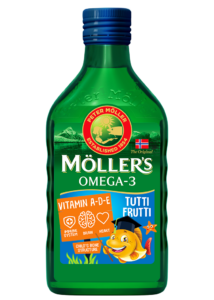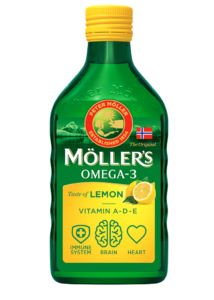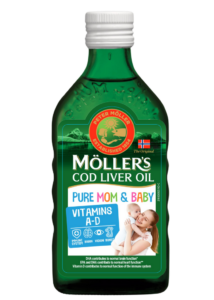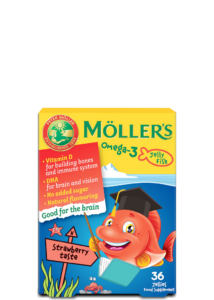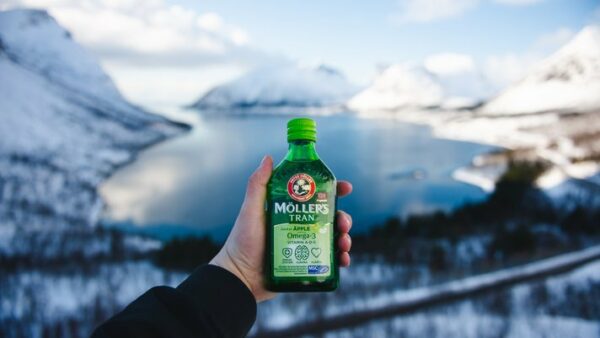Az omega-3 és az omega-6 zsírsavcsoportok nagy médiavisszhangot kapnak, mégis sokan nem tudják, mi a különbség a kettő között. Ha Ön sem biztos a válaszban, olvasson tovább!
Home » Omega 3 és 6 – Mi a különbség?
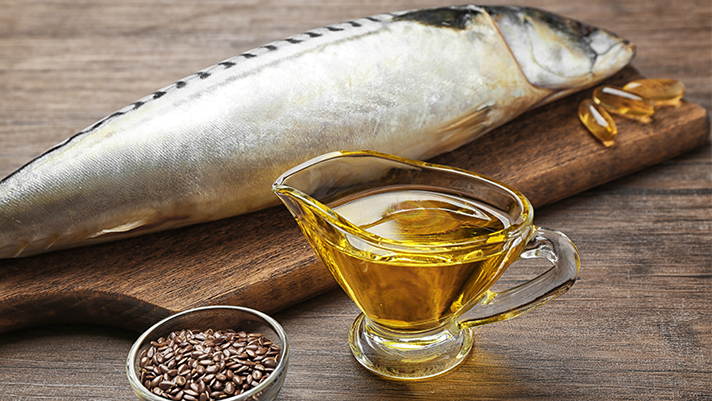
Az omega-3 és az omega-6 egyaránt fontos az egészségünk szempontjából. De míg az omega-6-ot bőségesen megkapjuk az étrendünkből, addig az omega-3-hoz való hozzájutás kihívást jelenthet. Ez olyan egyensúlyhiányt hoz létre, amely szerencsétlen mellékhatásokhoz vezethet.
Rengeteg omega-6
Az omega-6 különösen fontos a gyermekek normális növekedéséhez és fejlődéséhez. Ezt a zsírsavat olyan növényi termékekből kapjuk, mint a szójabab, a kukoricaolaj, a napraforgóolaj, a majonéz és a margarin. A gabonafélékben, a diófélékben és a tökmagban is megtalálható. Modern étrendünk gazdag ezekben az élelmiszerekben, és a bevitelünk nagy része olyan termékekben van elrejtve, mint a kekszek, burgonyachipszek, készételek, instant porlevesek stb.
Kevés az omega-3
Az omega-3 különösen fontos az agy, a szív és a látás szempontjából. Ezt a zsírsavat főként olajos halakból, például lazacból, pisztrángból, szardíniából, makrélából, szardellából és heringből nyerhetjük. A probléma az, hogy ezekből nem eszünk eleget ahhoz, hogy kellően magas bevitelt biztosítsunk.
Nem kérdés, hogy mind az omega-3-ra, mind az omega-6-ra szükségünk van. Tény azonban, hogy ezek a két anyag ugyanolyan felszívódási receptorokért versengenek a szervezetben. Ha nagy mennyiségű omega-6-ot és kis mennyiségű omega-3-at kapunk, ez azt jelenti, hogy az omega-6 zsírsavak ´nyerik a versenyt´ ugyanazokért a receptorokért. Sokan ezért joggal aggódnak e két zsírsavcsoport közötti egyensúly miatt. Ideális esetben növelni kellene az omega-3 bevitelét.
Egészségügyi előnyök
Milyen hatásai vannak az omega-3-ban gazdag étrendnek? Az omega-3 segít fenntartani a szív és az agy normál funkcióit, és megőrzi a jó látást. Ezek olyan egészségügyi előnyök, amelyeket akár idősebb korában is élvezhet, és amelyeket étrendjével is befolyásolhat.
Egyen több halat
Az NHS azt javasolja, hogy hetente legalább kétszer fogyasszunk halat. Ha ez nehezére esik, akkor az olyan termékek, mint a Möller’s tőkehalmájolaj vagy gyerekek esetében a Möller’s omega-3 halacskák epres vagy kólás gumivitamin segíthetnek.
What is good health?
Do you have a good lifestyle?
Lifestyle simply means the way in which you live. Health and lifestyle go hand in hand. You might feel you have a good lifestyle if you are physically active, eat healthily and generally experience a sense of wellbeing. Conversely, if you want good health you should also have a good lifestyle.
Physical activity is the major contributor to a good lifestyle, but diet, drugs, stress, sleep and social conditions are also play an important role. Being able to use the body properly to avoid injury also affects lifestyle. Physical activity can also prevent depression and help you to recover more quickly from mental illness, both of which obviously affect your lifestyle.
Diet can be a difficult topic for many. Perhaps you eat too much or too little or maybe you find it hard to know what foods to combine to have a balanced diet. It’s also important to eat food that contains important vitamins, minerals and dietary fibre, omega-3 and antioxidants. On top of all this, you also need to get enough energy, protein and the correct fatty acids. The requirement for these nutrients changes throughout your life. When you are older you also have different requirements than children and younger adults. Women also have different requirements than men. Pregnant and breastfeeding mothers also have special requirements.
When you get older, you lose muscle mass and your body requires less energy and therefore less food. You may lead a less active life than you did before, which is why you require less food. However, your need for minerals, vitamins and other nutrients remains the same. Of course, there are plenty of healthy and active older people, but when you reach 70 to 80 years of age, it’s easier to become ill, especially during flu season.
Some steps you can take to improve your lifestyle and health are to:
- eat a healthy and varied diet
- stay active
- watch your weight
- avoid too much alcohol and don’t smoke
- get enough sleep
- think positive
- practise good hygiene
What is good quality of life?
The World Health Organisation (WHO) defines quality of life as a state where the individual can realise their potential, cope with normal stressful situations, work in a rewarding and positive way, and be able to contribute to others and society.
Quality of life is a wide and somewhat diffuse concept that includes joy in, and a desire for, life. These are values that are rather felt than measured, which in turn are based on personal environment and choices. Quality of life doesn’t necessarily depend on being healthy or sick. It’s the moments between worries, sorrows, problems and ailments that matter. For example, if you have a chronic illness, a feeling of mastery can be important when talking about quality of life.
To sum up, quality of life is a combination of health, lifestyle, networks and social support. It’s about experiencing joy, meaning in life, satisfaction, security and a sense of belonging, as well as being able to use your strengths. It’s also about feeling interest in life, coping with everyday situations and a being committed to something or someone. If you have good quality of life, you will be able to cope better with the inevitable stressful situations in life.
További cikkek
Torna szülés után
császármetszés gyerekvállalás
Tőkehalmáj-olaj fogyasztás egész évben!
a-vitamin d-vitamin

